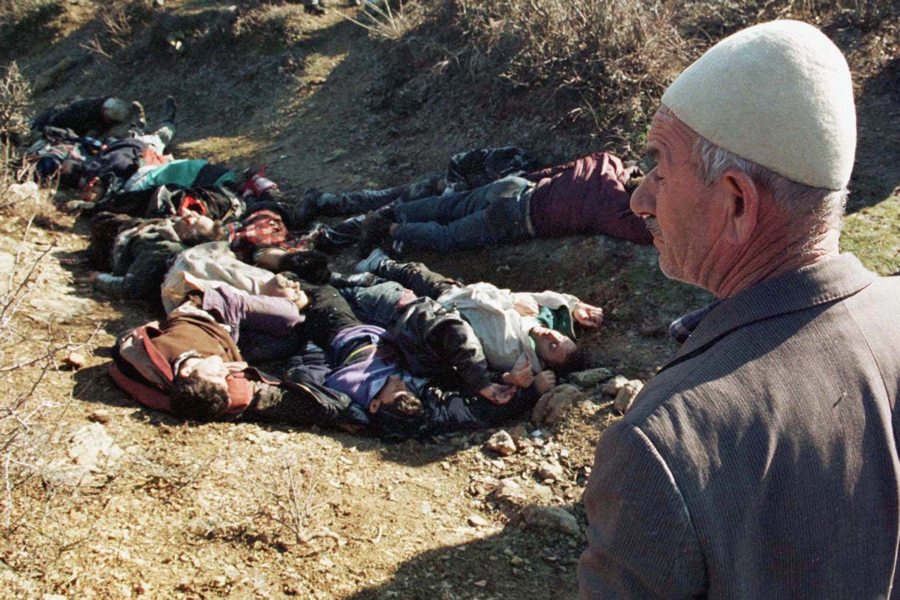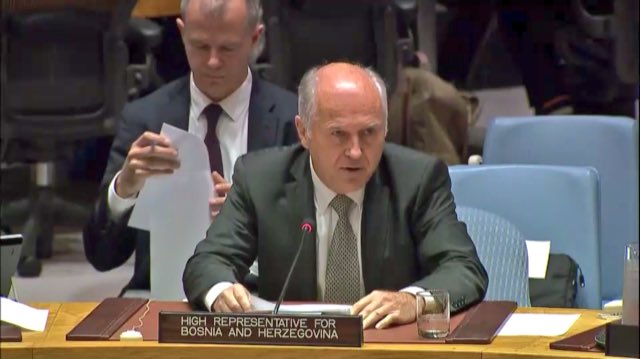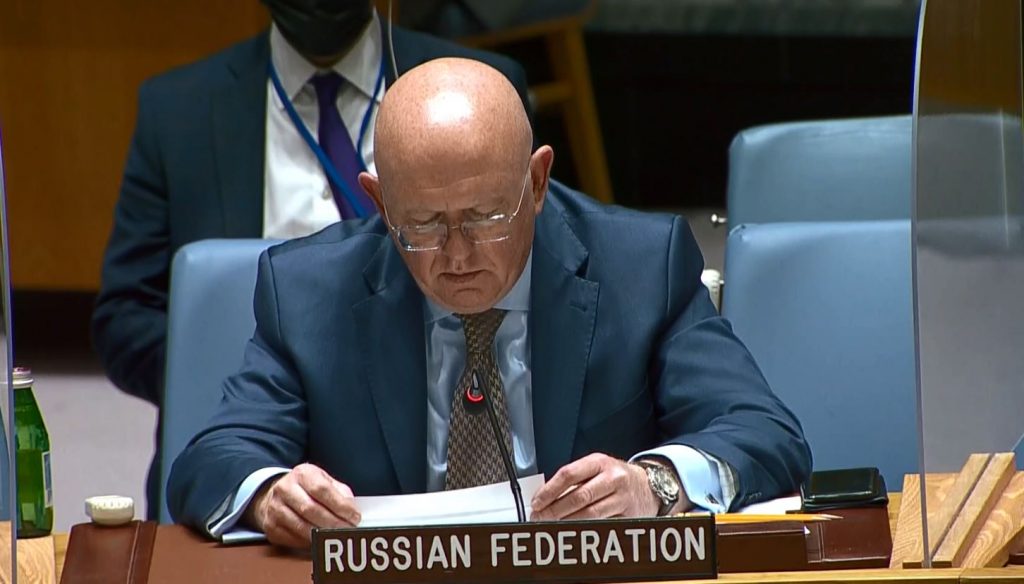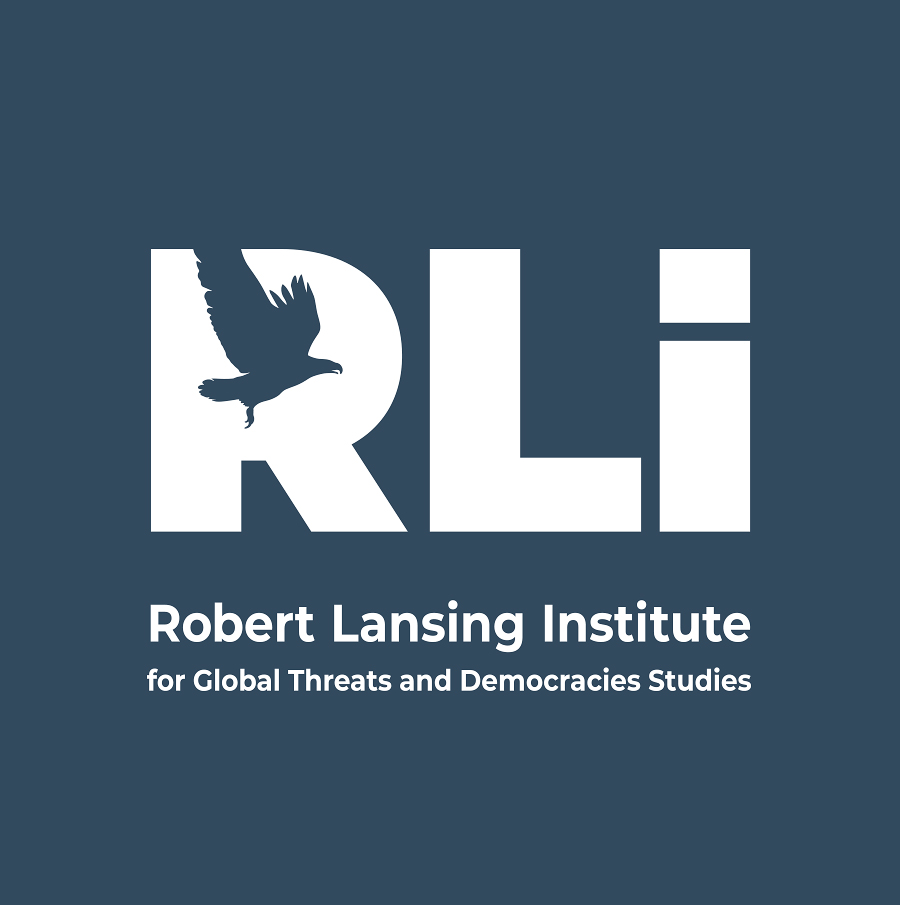The decision of the International Community’s High Representative for Bosnia and Herzegovina, Valentin Inzko, to condemn the denial of genocide in Srebrenica, has not been welcomed by Republika Srpska representatives. The Criminal Code change in BiH is mostly related to the way Serbs treat Srebrenica genocide.
The genocide in Srebrenica has been confirmed by the International Criminal Tribunal for the former Yugoslavia, but the Serb member of the Presidency of Bosnia and Herzegovina, Miroslav Dodik, has repeatedly denied it. He even branded Ratko Mladic’s conviction for war crimes and genocide against humanity a “mere myth,” while continuing to glorify Mladic by calling him a hero.
“General Mladic was sent directly between the legends, and the Serbian people will understand that, without his soul, there would be many more murders of our people,” Dodik told B92. Dodik is known for his preferences to separate Republika Srpska from BiH. In response to an amendment to the Criminal Code condemning the denial of genocide by parliament, the Serb-led unit of Republika Srpska last week passed a law to not enforce the High Representative’s decision and another one, providing for sentences of up to 15 years in prison for what they claimed is “violating the reputation of Republika Srpska”. On this occasion, Dodik reiterated his position that “there was no genocide” in Srebrenica.
The Serb member of Bosnia and Herzegovina’s tripartite presidency condemned the decision of the High Representative of the International Community Inzko and threatened the “dissolution” of the country. “After this step, Bosnia cannot function,” Dodik had said. “I think there is no other option for Republika Srpska than to start a process of dissolution.”
The Srebrenica genocide was also relativized by the Minister of Justice of Montenegro, Vladimir Leposavic, who was dismissed from the position on the initiative of Prime Minister of Montenegro Zdravko Krivokapic. Leposavic’s ouster was seen as the biggest crisis the current government has had since the Montenegrin elections. Krivokapic had stated that Montenegro, if it wanted to be a European country, would not follow the consequences of the 1990s.
The United States Embassy in Podgorica said it was concerned about statements that cast doubt on what happened in Srebrenica, Bosnia and Herzegovina, during the 1995 war. The Montenegrin Parliament also adopted a resolution recognizing the Srebrenica genocide, after which Kosovo followed suit.
The Serb-led unit in BiH stands alone in denying the genocide in Srebrenica and it is clear that the denial of genocide by one side may lead to the eruption of new conflicts. This issue seems to be the biggest challenge of the new Representative of the International Community in BiH. Former German Minister Christian Schmidt has been appointed as High Representative of the International Community to supervise the Dayton Agreement implementation, which ended the 1995 war in Bosnia and Herzegovina.
Schmidt’s appointment was supported by 11 board members of the Peace Implementation Council, with only Russia standing against. Russia’s embassy in BiH immediately challenged Schmidt’s legitimacy, stating that Schmidt’s appointment must be formally confirmed by the UN Security Council and that this was not stated on the official UN website. Recall that the unanimous support of the Council is not legally required.
Russia’s politics against BiH’s efforts to join the EU and NATO is clear. It has always considered this a hostile act. Russia has never ceased attempts to maintain tensions in the Balkans through Serbia in relation to Kosovo on the one hand, and BiH through Republika Srpska on the other. As Montenegro and Northern Macedonia “got out of hand” in terms of NATO membership, Russia’s main goal is to prevent the enlargement of the European Union and NATO.
Following the appointment of Christian Schmidt as High Representative of the International Community, new diplomatic efforts supported by Germany and other EU countries, the United States, would pull back attention and create a serious working atmosphere between the two ethnicities. The common seriousness of the above-mentioned countries would also block Russian influence toward destabilization, consequently leading the country towards EU membership. Otherwise, creating spaces for outside influence would lead BiH to partition, and this is the ultimate goal of Russia and Serbia, both of which strongly oppose BiH’s membership in the EU and NATO, and oppose EU presence in resolving BiH issues.

Read also: Can Kosovo sue Serbia for genocide?






